by Niurka Castaneda
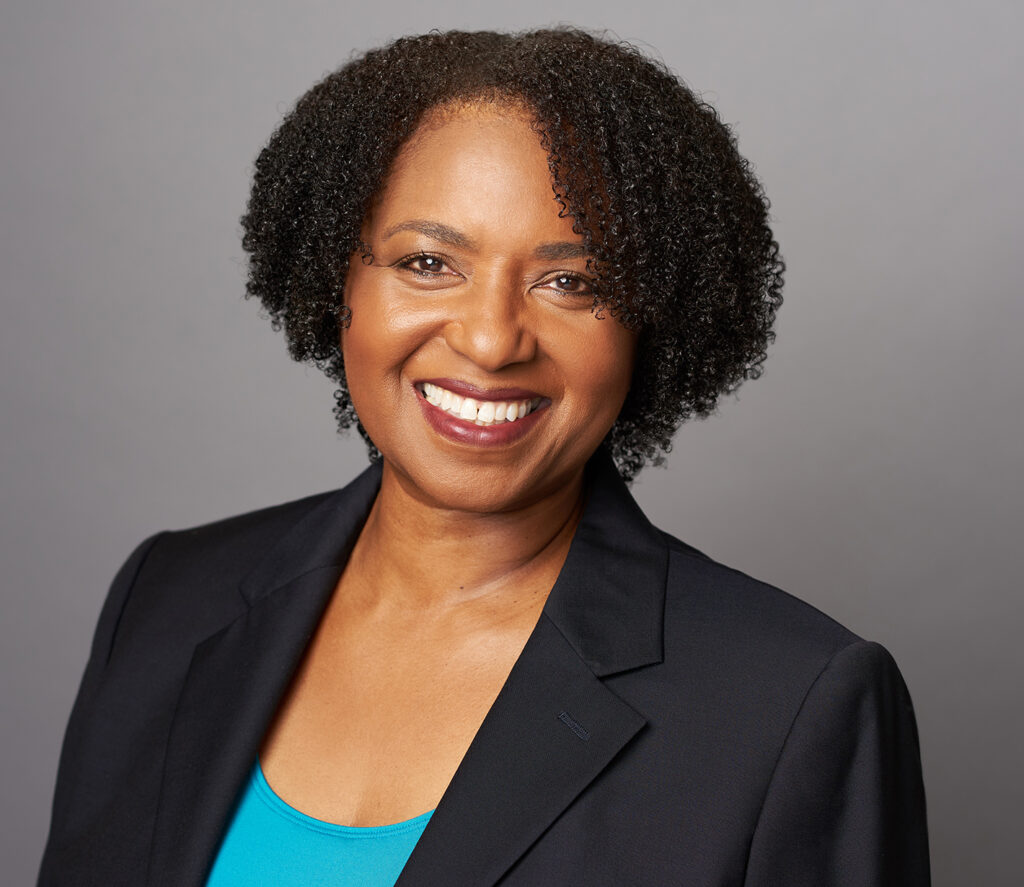
Meet Dr. Kamin Samuel, PhD she was in the US Navy, as a helicopter pilot. She was also the first African American Female Helicopter pilot for the Navy. She transitioned out of the military in 1994 and entered into the reserve, just long enough to pick up Lieutenant Commander. When Kamin transitioned out of the military, she believed she was ready to venture into entrepreneurship. However, the reality was starkly different from her expectations. Without the comprehensive transition programs available today, she found herself ill-prepared for the challenges ahead.
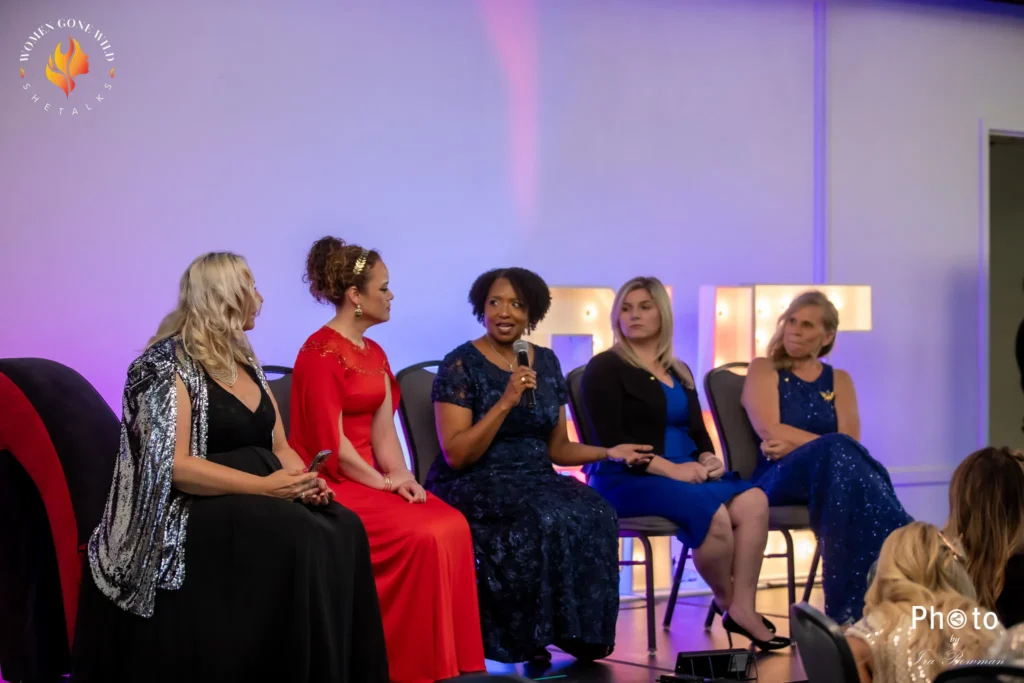
Going from a sense of community and financial stability to facing bankruptcy and foreclosure on two homes within just 14 months of leaving the service was a humbling experience. Dr. Kamin thinks back to that moment, “The shame of my failures led me to conceal my military background, a sentiment shared by many women veterans who choose not to identify as such.”
During a She Talks event in Huntington Beach, CA, a participant’s remark struck a chord with me because I had also distanced myself from my military past. I failed to capitalize on available resources after my discharge, retreating from life as I struggled to rebuild. It wasn’t until I encountered someone familiar with transition programs who encouraged me to explore my entitlement to benefits that I began to consider seeking support. Despite the advice, it took me another year to muster the resolve to investigate the assistance available to me.
Do you feel that you have transitioned already?
I think I’m still transitioning even though it’s been a few decades. Currently, I have two homes—one in California and the other here in Pensacola, Florida. Returning to Pensacola, where I initially began my military career, has prompted me to confront some unexpected challenges. I find myself self-diagnosing with a touch of PTSD, realizing that I had compartmentalized my military experiences without fully addressing the emotions tied to them. As someone inherently driven, a trait instilled during my military service, I’ve always pushed myself to excel and achieve.
What would you tell somebody that is still transitioning?
I would tell them so much; it gives me chills. It is to be proud of your service and of everything that you did, no matter if it was hard. We’re technically not really built for that much training, but we learn how to do it. We need to teach the women who are coming out of the service to be proud and to own their gifts, skills, and abilities, own that they can command a job, in whatever rate or rank they were. They are far better than they ever thought they were because civilian life doesn’t have something similar… The training that we get, the mental toughness, the ability to think, our creative thinking, our critical thinking is high grade.
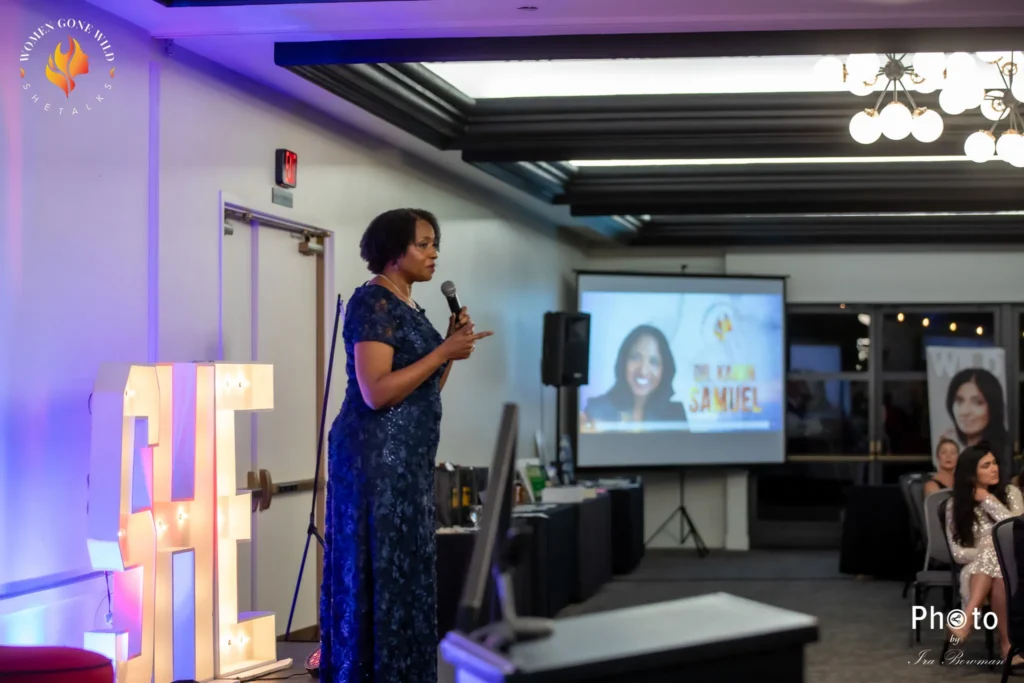
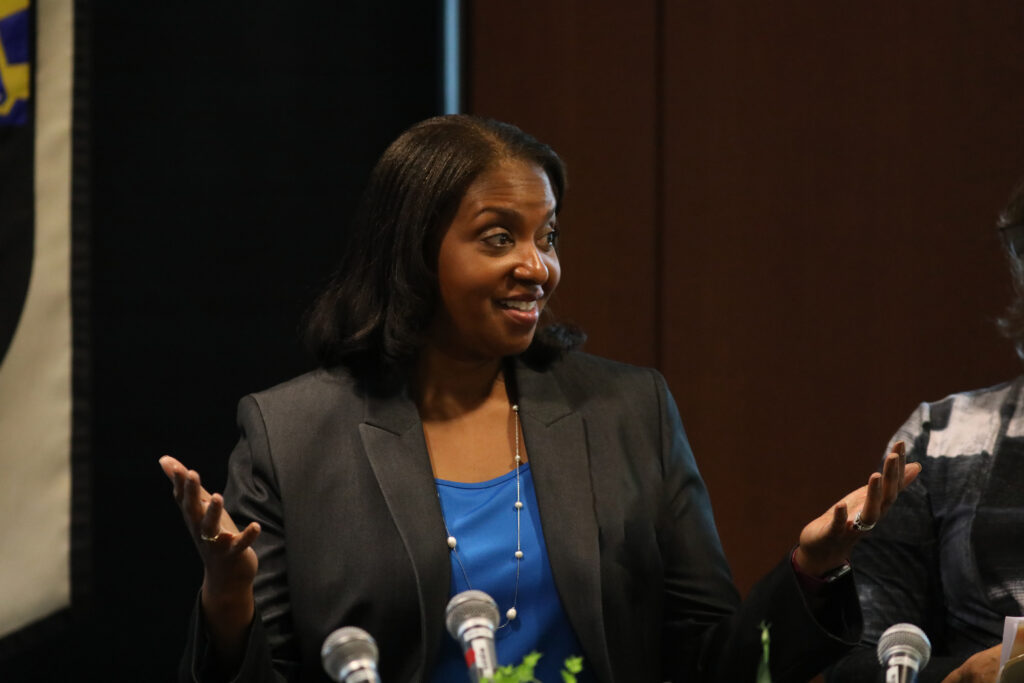
And so when I talk to women, I tell them to use their career, because I just kind of put it as a line item, but it informs everything that we do. If you’ve been in anywhere from 2 to 28 years or longer, everything we do comes from that learning, the ability to think really quickly, to take action, to operationalize.
And what I found was military members do not know how to talk about their skills and translate them into the language that a corporate person might use so that they can get paid well for the skills and abilities that they have.
I think I would also tell them to use everything that the military is offering you. Squeeze it! Squeeze everything out of the military transition program. The training program is amazing. None of that existed when I left. And if you’re in the military, take advantage of everything they offer because they really want you to transition well. Also, get mental health services. That’s even if you had an amazing career. The military and the civilian world are completely different, and how we think in the military is not how civilians think at all. I am married to a man who doesn’t even understand the military. I have to still explain to him how my mind thinks.
Since leaving the military, what has been your greatest success?
I’ve experienced significant success since my military service. Education has been a passion of mine, and I’ve dedicated much of my energy to it. I’ve earned three master’s degrees and a doctorate. Another notable success is my journey of recovery. After facing bankruptcy and foreclosure, I confronted a moment when suicidal thoughts entered my mind. However, I realized that entertaining such thoughts was beyond my control, so I made a conscious effort to dismiss them. Instead, I focused on recovery, delving into the study of the mind and seeking ways to transform my thinking. This led me to a successful corporate career, rising from an entry-level position to Vice President over 11 years.
Additionally, I’ve authored five books, three independently and two collaboratively. This drive to achieve has been my anchor since leaving the military.
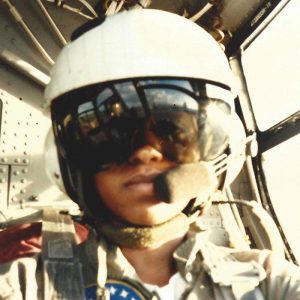
According to the VA, the average number of veteran suicides per day rose from 16.4 in 2001 to 16.8 in 2020, often due to financial challenges, homelessness, and a sense of isolation. What advice would you offer to those in such dire circumstances?
When I think about those numbers, I get emotional and I’m grateful to have overcome those dark times. My advice to those struggling and thinking that you can’t survive, is that is just a belief time, and to remind them that if you survive the military, you can survive anything, and that they possess an inner strength capable of enduring any challenge. They can draw upon their ability to take orders, think critically, and follow a defined path. The first step is to replace negative thoughts with positive ones and to seek help.
For those haunted by traumatic memories, professional assistance is crucial. Transforming these haunting images into positive ones can lead to healing and joy. I often encourage individuals to identify their strengths. A free strengths assessment available at viacharacter.org can reveal inherent qualities that guide progress, one step at a time.
During my darkest moments, focusing on breathing and identifying my strengths helped sustain me. If anyone is struggling, whether in or out of the military, numerous services and hotlines are available for support. It’s essential to realize one’s worthiness of help, success, and happiness. If you are feeling these feeling call the Suicide Crisis Lifeline 988.
And we have to realize that kindness, a common trait among military members, is a strength, not a weakness. Embracing this kindness can guide individuals through challenges with courage and compassion. There’s strength in kindness, even though we were taught to be tough. We often think these qualities oppose each other, but in reality, you can be kind and tough simultaneously.
I know not all transition programs are equal. I encourage women veterans to ask questions and do their research. During a transition program, for the Army in Italy, I encountered a 22-year veteran, a finance soldier, that was told by her CEO that she was unemployable. This shocked me. I felt compelled to document her story in my upcoming film, ‘Courage to Thrive,’ which follows the journeys of three women of color veterans, including myself. It’s all from the point of view of women of color. It’s crucial for women veterans to recognize their worth and leverage their skills confidently. People can find more information about the film and follow its progress on my website https://www.kaminsamuel.com/film/ because I think that there’s going to be a component and how I, talked to the woman veteran, about who she is, that they can see themselves in that.
“There’s a wealth of resources on my website for those struggling with debt or seeking to grow their wealth. I’ve learned from my own failures and focused on helping others create wealth from within. Veterans, especially women, have more resources than they realize. They should utilize them and recognize their extraordinary potential.”
What would you say to those veterans that sometimes feel invisible, when people don’t recognize they are a veteran just because they’re a woman, even when they are in a room full of veterans? People just assume that they are the wife or the daughter… Has that ever happened to you and how do you deal with it?
That’s a brilliant question, and yes, it happens. it’s a common struggle. I loved being in uniform because the uniform entered the room, not the person. If I, as a female, entered the room, it was easy to be overlooked. So, yes, feeling invisible can happen, and in those moments, we must draw upon our strengths and how we present ourselves. First and foremost, we must acknowledge and own our identity as veterans. When others fail to recognize us, we must be willing to assert ourselves, not in an aggressive manner, but confidently.
Being the first African American female helicopter pilot granted me a unique perspective. Despite the challenges, I excelled by remaining focused on my goals. Veterans, especially women, possess remarkable resilience and should embrace their achievements proudly.”
I bring my military experience into the room and share it openly. If someone isn’t paying attention, as sometimes occurs, I’ll interject with something like, “When I served…” Men often receive immediate recognition based on their appearance alone, but it’s different for women. We lack the visible cues that signal our military service. We must assert our identities confidently, even when others fail to recognize us. Women should advocate for fair compensation by knowing their worth and asking for it. Job interviews are opportunities to highlight our dedication, teamwork, and problem-solving skills. We must convey our value confidently and aim high in negotiations.”





